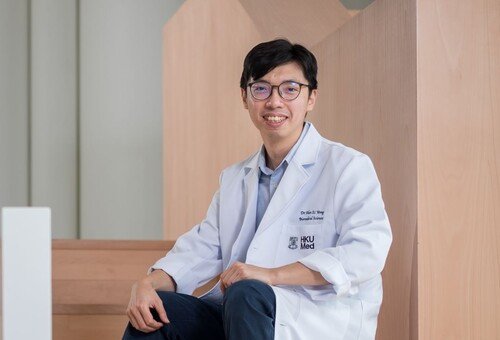
Press Release: Dr Alan Wong and his team highly accurate SaCas9 enzymes with single-base precision for therapeutic genome editing
Mar 09, 2022
Dr Alan Wong and his team have successfully engineered new Staphylococcus aureus Cas9 (SaCas9) variants, named KKH-SaCas9-SAV1 and SAV2, which, compared to the wild-type KKH-SaCas9, exhibit greatly enhanced targeting precision for editing only the disease-causing allele but not the normal allele. The new SaCas9 variants also reduce undesired off-target edits by more than 95% while possessing high editing activity. This study could open new possibilities to target disease-causing single-base mutations that occur in many genetic disorders. The findings are now published in Nucleic Acids Research and a patent application has been filed based on this work.

Professor Kathryn Cheah, interviewed by Croucher Foundation, shared her thoughts on the challenges and experiences of women scientists in Hong Kong
Mar 08, 2022
In celebration of International Women’s Day, Croucher Foundation spoke to four leading women scientists in Hong Kong about gender equality in Hong Kong science and academia.
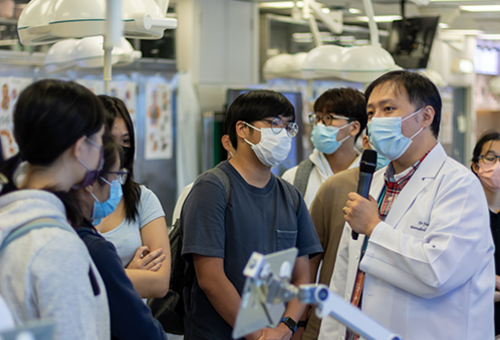
Media Coverage: Dr Jian Yang wrote an article on HKU Body Donation Programme for am730
Mar 07, 2022
Dr Jian Yang wrote an article on HKU Body Donation Programme for am730.
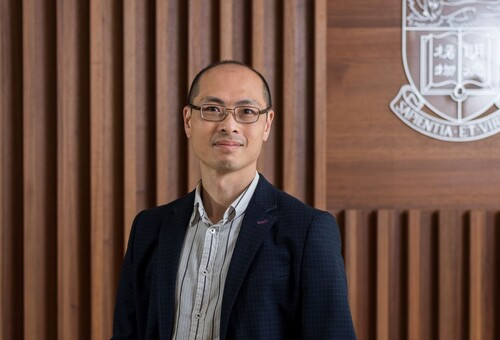
Press Release: Dr Jason Wong and his team discover an unknown function of DNA mismatch repair that protects us from cancer
Feb 09, 2022
Dr Jason Wong and his team discovered an unknown role of DNA mismatch repair (MMR) in maintaining the integrity of the human genome. People born with defective MMR, known as Lynch syndrome, will have a high chance of developing cancer by early adulthood. The research, now published in Science Advances, highlighted why MMR is so important in protecting us from developing cancer.
Press Release: HKU Biomedical Engineering team develops a new bioinformatic tool for precise prediction of cells transformation and diseases formation including cancers
Feb 08, 2022
An interdisciplinary team led by Professor Kevin Tsia in the Department of Electrical and Electronic Engineering and Programme Director of Biomedical Engineering Programme at the University of Hong Kong (HKU) has developed a new computational tool for studying omics data that overcomes current challenges in the study of normal and malignant cell transformation. Dr. Joshua Ho, Associate Professor in School of Biomedical Sciences in LKS Faculty of Medicine, HKU also participated in this research work.
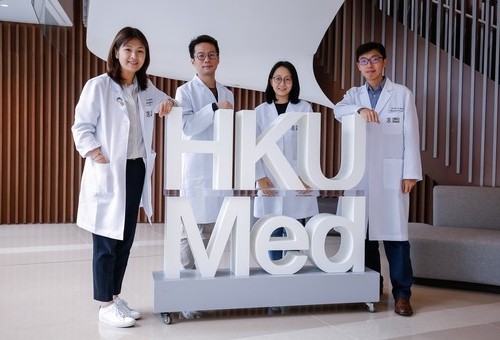
Press Release: HKUMed research team identifies new drug combo for liver cancer via CRISPR-Cas9 screen
Dec 20, 2021
A research team of LKS Faculty of Medicine, The University of Hong Kong (HKUMed) has successfully repurposed an approved drug ifenprodil, a vasodilator, to be used in combination with the FDA-approved first-line drug sorafenib for hepatocellular carcinoma (HCC) treatment. This study leveraged on their CombiGEM-CRISPR v2.0 screening platform to expedite the search among the many possible drug combinations to inhibit druggable targets in the genome for treating HCC. The findings are now published in Cancer Research.
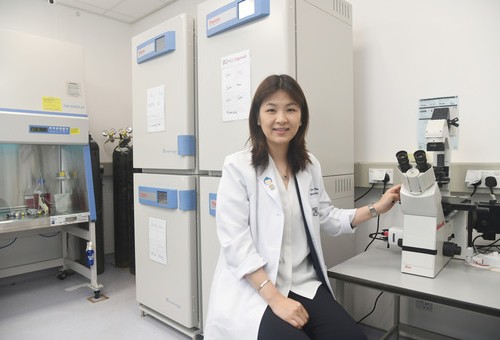
Media Coverage: Dr Stephanie Ma shared on her plan after being awarded the RGC Research Fellow Scheme
Dec 06, 2021
Dr Stephanie Ma shared on her plan after being awarded the RGC Research Fellow Scheme.
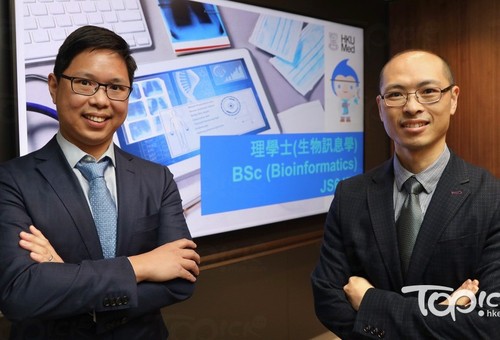
Media Coverage: Dr Joshua Ho and Dr Jason Wong being interviewed by local media to share on HKUMed new programme BSc(Bioinformatics)
Nov 25, 2021
Dr Joshua Ho and Dr Jason Wong being interviewed by local media to share on HKUMed new programme BSc(Bioinformatics).
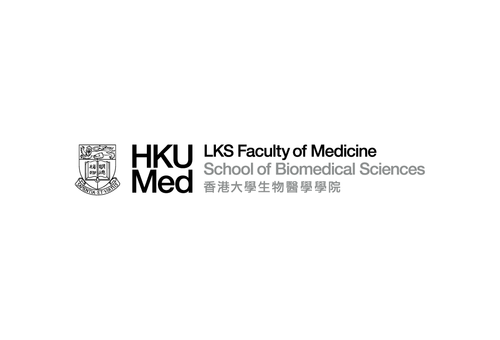
Press Release: HKUMed scientists identify genetic risk factors for spine osteoarthritis in a milestone research
Nov 04, 2021
Scientists from the LKS Faculty of Medicine, The University of Hong Kong (HKUMed), contributing as part of the ‘Genetics of Osteoarthritis (GO)’ consortium to the world’s largest study of over 800,000 individuals, have identified genetic risk factors – variants associated with SOX5 and CHST3 genes, key regulators of the development of the intervertebral discs, to be implicated in spine osteoarthritis (OA). The findings are now published in CELL, a premier scientific journal.
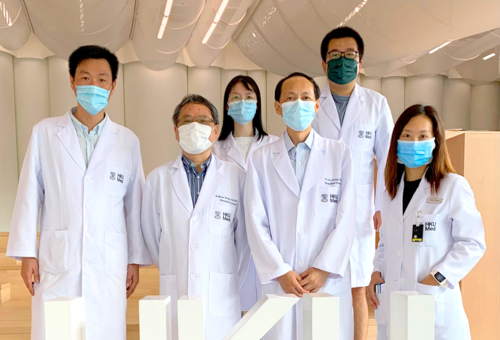
Press Release: HKUMed identifies an important gene linking the two hallmark pathological features: Amyloid β (Aβ) plaques and neurofibrillary tangles (NFT) in Alzheimer’s disease (AD)
Aug 25, 2021
A research team of LKS Faculty of Medicine, The University of Hong Kong (HKUMed) has identified an important gene linking the two hallmark pathological features: Amyloid β (Aβ) plaques and hyperphosphorylated tau (p-tau) forming neurofibrillary tangles (NFT) in Alzheimer’s disease. The gene called Pax6 is upregulated significantly in Alzheimer's disease brains and inhibition of Pax6 could reduce tau phosphorylation and amyloid β-induced neuronal death. This study has the potential to offer a novel therapeutic target for Alzheimer’s disease. This study has been published in Brain (Oxford).

